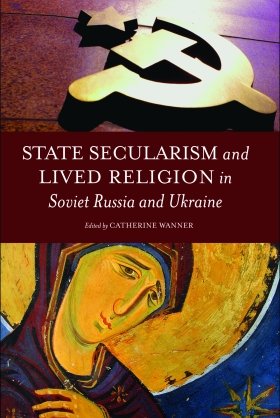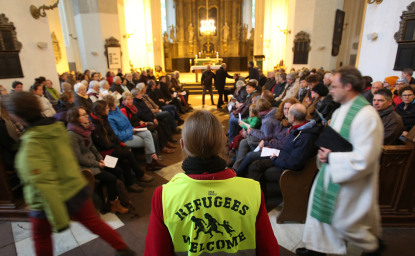
-
State Secularism and Lived Religion in Soviet Russia and Ukraine is a collection of essays written by a broad cross-section of scholars from around the world that explores the myriad forms religious expression and religious practice took in Soviet society in conjunction with the Soviet government's commitment to secularization. The implementation of secularizing policies invariably shaped the forms of religious expression that emerged in Soviet Russia and Soviet Ukraine. Religious practices across confessional groups over time reflect the waves of intensification and relaxation of repressive practices.
During the post–World War II period, which most of the essays in this volume address, repressive tactics shifted from raw coercion and violence to propaganda and agitation as the main means to suppress religious practice and belief in the public sphere. Unlike other studies that have focused on such forms of repression, the authors in this volume consider how some communities and individual believers were able to adapt their practices and beliefs to the social, political, and ideological constraints of Soviet society so as to pursue their beliefs. The volume thus offers a new perspective on Soviet secularization that moves beyond the formation of policies and decrees to consider two additional dimensions.
First, the essays engage how governing mandates to suppress religion and promote a secular society were experienced by believers. Second, this approach allows the authors to illustrate the variety of secularizing policies and how they were invariably implemented across regions, over time, and in response to perceptions of local religious practice. By considering the intersection of religious practice and Soviet secularizing policies, this collection expands our understanding of religiosity in the region and illustrates how specific denominations and the believers within them adapted to the conditions set by socialist modernity.
Catherine Wanner is Professor of History, of Anthropology, and Religious Studies at Penn State University.
Editor
Catherine WannerBrowse Insights & AnalysisExplore More
Browse Insights & Analysis
Who Owns Tradition? Ukraine’s Church Controversy
Posted date/time:
The Two Layers of Alexei Navalny
Posted date/time:
Here to Serve
Posted date/time:Source: Wilson Quarterly
